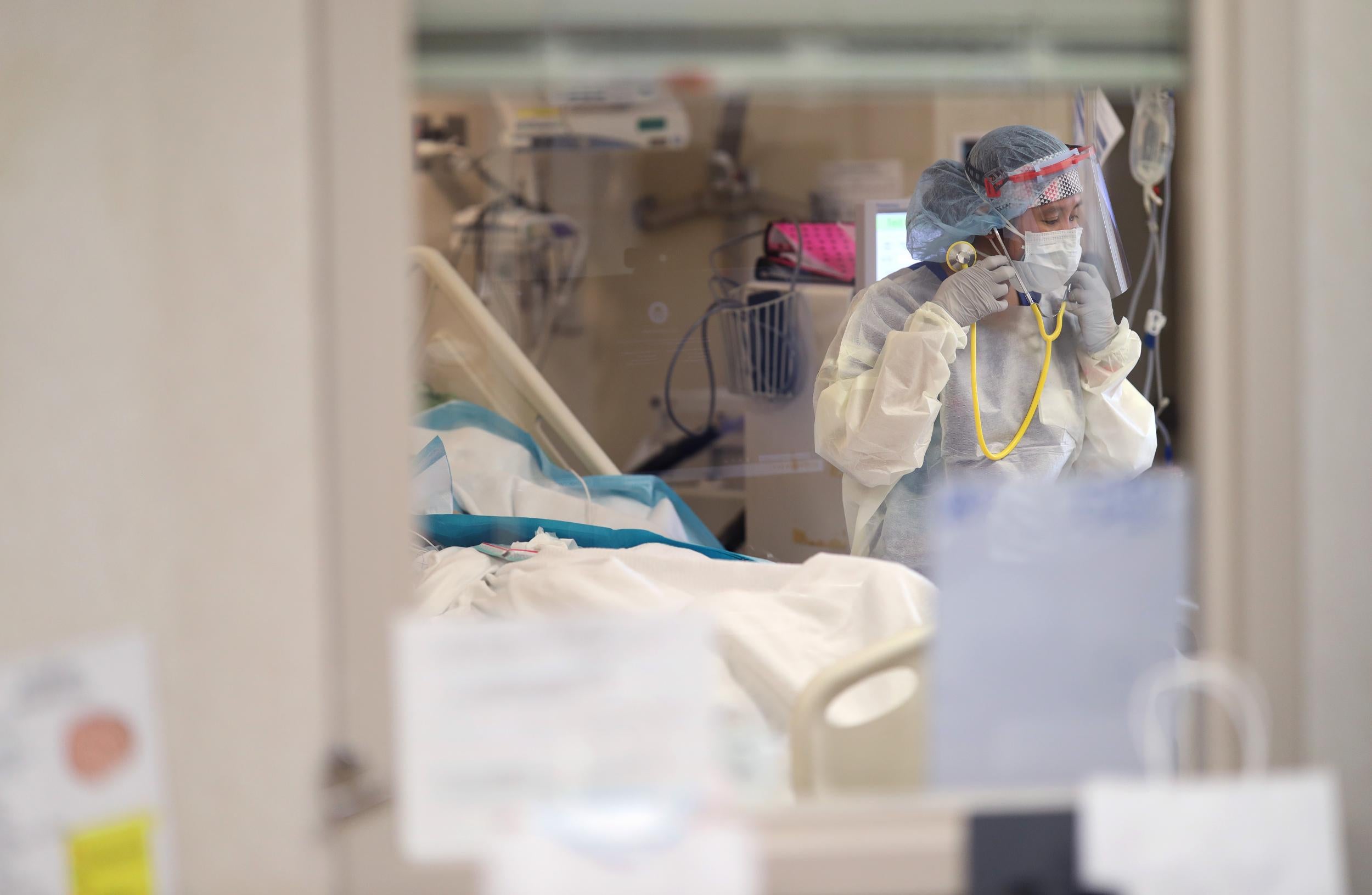Prepping for a disaster is a luxury that many of us can't afford
As we see in some parts of America, people who want to hunker down for years are not attempting to change the future: it is often part of a retreat from active citizenship, writes Michael Mills


As revealed by the Great Toilet Paper Panic of 2020, the spread of Covid-19 has been a surprise to many people around the world. Yet, amidst the global uncertainty caused by coronavirus, one group has remained eerily calm.
Particularly, America’s subculture of “Doomsday Preppers” – a group I’ve interviewed and studied throughout the last half-decade – have spent years preparing for such a pandemic.
One of them explained to me in 2014 that the possible spread of “a new swine flu, bird flu, a fill in the blank kind of flu” was a good reason to store several months’ worth of a food and toilet paper at home.
Now, rather than encouraging the standard mockery of America’s preppers, recent events have led more of us to see their activities in a sympathetic light, with the geographer Bradley Garrett suggesting in The Atlantic that, going forward, “We Should All Be Preppers”.
As well as looking increasingly sensible in recent weeks, Garrett states that prepping is “a kind of activism… against the false promises of capitalism, of the idea of endless growth and the perpetual availability of resources.” It is, perhaps, then, possibly a solution to various pressing social problems.
Yet, if prepping is a form of activism, it is clearly an inadequate one.
After all, even if we should all be preppers, many of us cannot. Prepping is fundamentally a luxury pursuit, one that can only be entertained once various basics are comfortably covered.
It is no surprise, then, that it particularly thrives among the super-rich – whose bunkers, in a morbid twist on MTV Cribs, have become a recent subject of media fascination. It also particularly proliferates among comfortable professionals in their 50s and 60s: lawyers, doctors, and business owners, many of whom have retired, paid off their mortgages and sent their children to college. Meanwhile, among those fighting for survival before having to contend with a new global catastrophe, this kind of expensive “activism” has never been an option.
But prepping is not an attempt to change the future: it is often part of a retreat from active citizenship. As the late American historian Christopher Lasch argued, the preoccupation with individual survival has often absorbed energy from any “collaborative assault on the common dangers confronting humanity”. Among the prepared, interest in society’s collective future, and in holding political leaders to account, can understandably wane – and is replaced by resignation to a disastrous fate.
Such has certainly been the case with Oliver, a prepper in Arizona who took up this pursuit after abandoning committed right-wing activism several years ago. “My sphere has gotten smaller and smaller”, Oliver explained to me, adding that he’s now “pulled in” from campaigning to focus solely on the safety on his family.
Additionally, where preppers do still engage in politics, they tend to support right-wing leaders who would erode effective disaster management. The vast majority enthusiastically embraced the arrival of a Trump administration that has since been criticised for its mishandling of the coronavirus – for its disbanding of America’s Global Health Security and Biodefense Unit, for its lack of investment in effective testing, for having the president’s unqualified son-in-law lead government efforts and for its mixed messages concerning the seriousness of the disease.
My recent conversations indicate that most preppers have nevertheless been impressed with the president’s recent performance. For instance, when asked about this, Heidi, a retired prepper from Texas, responded bluntly: “I think Trump is doing a great job! Enough said.”
Furthermore, for many preppers, the dismantling of federal protections against disaster is a reason to support the president. As Heidi told me: “I think it’s better to prepare [without] a great big Washington bureaucracy that throws money at an event.” In this scheme, Heidi’s ideological scepticism towards government suggests to her that Americans are better served by relying on the Red Cross and “a bunch of churches that do disaster relief” instead.
Simple suggestions that the current crisis has validated prepping therefore obscure the self-perpetuating nature of this phenomenon. Simply put, prepping reinforces the conditions in which prepping can seem like the only sensible game in town.
But while the current crisis has encouraged many of us – perhaps rightly – to rethink what we keep in our cupboards, we might also reflect on how we got here.
Dr Michael Mills is a lecturer in criminology at the University of Kent
Join our commenting forum
Join thought-provoking conversations, follow other Independent readers and see their replies
Comments